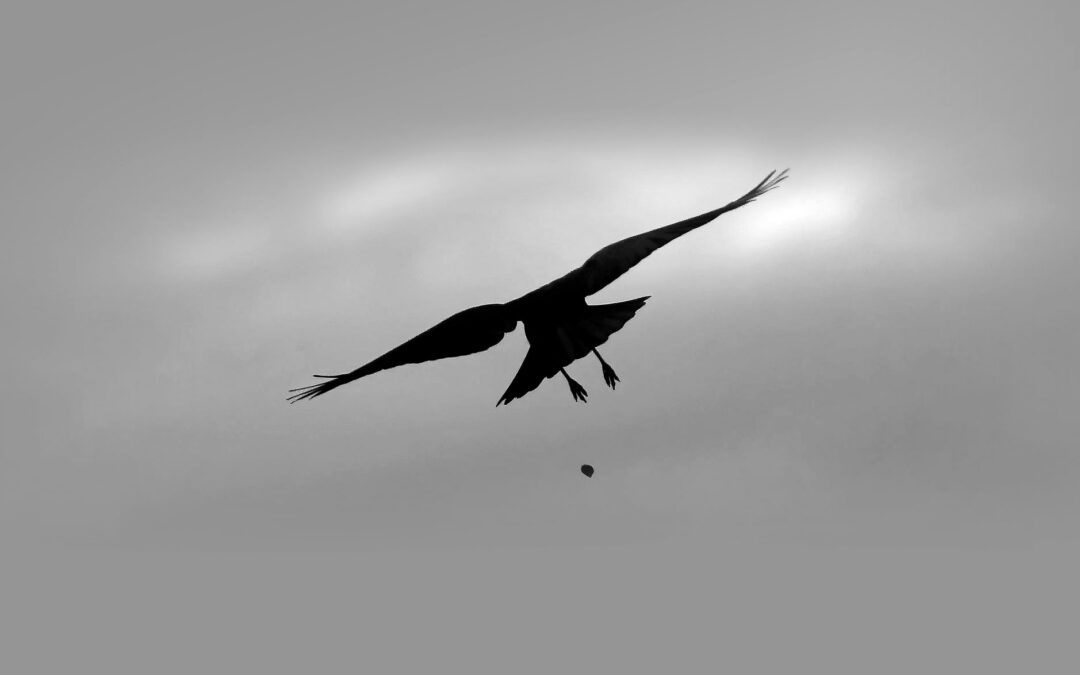A radio show I sometimes tune into has a long-running feature where listeners write in about objects that have fallen on them from out of the sky – a slice of white bread, an unopened Mars Bar, jar lids and bottle caps, once (or did I imagine it?) a lady’s watch. These surrealist bombers are presumed to be birds, hence the feature has come to be called ‘crow drops’.
One of my favourite kinds of poems has something in common with the ‘crow drop’. Usually short, always unexpected, these are the poems which arrive from out of the blue and leave you slightly dazed at the sudden strangeness of the world.
Sometimes a single word is enough for a poem to qualify. In Ben Verinder’s brief and beautiful elegy for a recently dead father, ‘Signs of Life’, the word ‘audacity’ lands in the final line of the poem with the full force of loss:
“A wide window overlooks the harbour town/ right across to his front door, which I will unlock/ to the audacity of objects, clothes wearing his cologne.”
How dare these ordinary things exist when my loved one has gone; a sentiment many of us will have experienced in bereavement, compressed into eight letters which, for this reader, transforms the whole poem.
This is something I’m always in search of when reading or writing a poem – the image or phrase or idea which is both strange and true which reminds you, as Louis MacNeice puts it in ‘Snow’, ‘That world is suddener than we fancy it.’
Daisy Bassen’s poem ‘On Dreaming of Dollhouse Furniture Found Buried’ is pure crow drop. That title for a start – the weirdness of ‘Buried’ suggesting a deliberate, possibly ritual act, while ‘Dreaming’ opens up the potential of the subconscious. What follows lives up to the title’s oddness, though crucially, this oddness doesn’t strike me as contrived, but genuinely startling.
The ghosts of other writers are here, appropriately enough in a poem which ends with ‘The distance the dead have gone’. Emily Dickinson flits past in the subverted syntax (‘We make our miniatures for the comfort,/ upon occasion, grand,/ of the doll’s china teapot…’) while there’s a hint of Hopkins in ‘All that is little, whittled, wonderful – ‘ but what Bassen ends up making is ultimately her own. The poem as a whole is as distinctive and strange as the tiny rocking chair she pictures ‘alien…In the palm of your hand.’
Of course, what lands on us from the sky isn’t always a gift (though even bird poo is, in some cultures, a sign of good luck!). And poems can do many valuable things other than surprise, but I will always be drawn to poems that catch me off guard, that make me look up, baffled, as to where on earth (or rather off it) this thing has come from.
Esther Morgan
You can purchase Rialto 98 here.
Image Crow Drop by Martyn Fletcher 2020.






